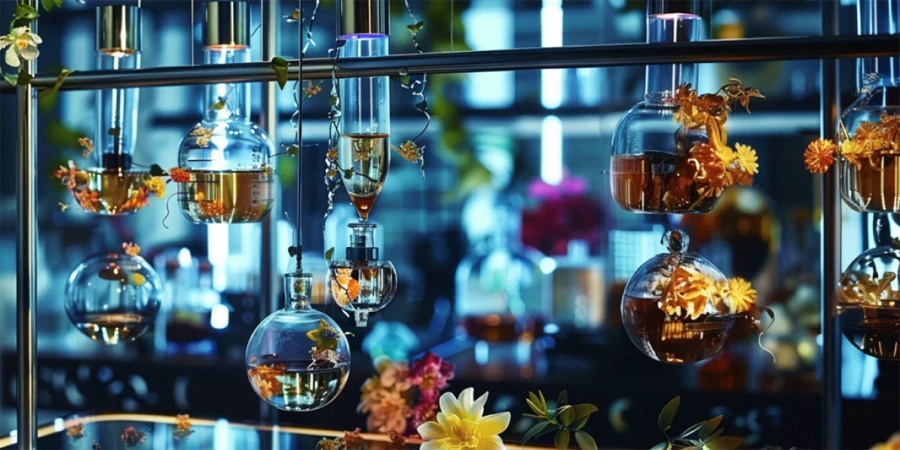As the fragrance industry encounters the challenges of sustainability and ingredient scarcity, technology emerges as a savior. Immortal perfumery, using cutting-edge biotechnology and artificial intelligence, is set to redefine the boundaries of scent creation. This innovative approach not only preserves biodiversity but also introduces unprecedented scents that promise to enchant the olfactory senses.
Table of Contents
● The rise of biotechnological perfumery
● Pioneering brands in immortal perfumery
● The future of fragrance with AI technology
The rise of biotechnological perfumery
The fragrance industry is currently experiencing a significant transformation thanks to the integration of biotechnology. As traditional sources become less sustainable, the focus has shifted towards developing perfumes that are both long-lasting and environmentally friendly. By employing innovative technologies, brands are now capable of synthesizing complex scents that mimic those of rare and endangered plants. This not only helps in conserving biological diversity but also ensures that beloved fragrances remain in production without the ecological guilt associated with traditional sourcing methods.
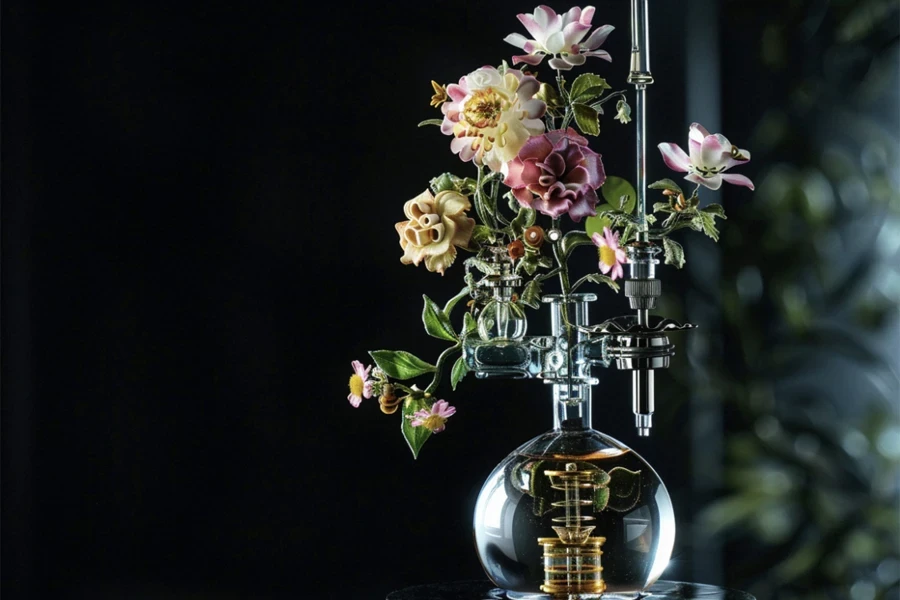
Biotechnology is proving crucial in addressing the pressing issue of sustainability in perfumery. It allows for the recreation of precise scent molecules, which are often difficult and costly to extract from their natural sources. Furthermore, these technologies enable the creation of stable scents that do not degrade as quickly over time, enhancing the overall consumer experience. Brands embracing these technologies are setting new standards for quality and responsibility in the industry, leading a shift towards more sustainable practices that others are beginning to follow.
Pioneering brands in immortal perfumery
Several innovative brands are leading the charge in the realm of immortal perfumery, utilizing cutting-edge technology to redefine the sustainability of scents. Swiss perfume giant Firmenich, for example, has developed its Firgood collection, which includes a synthetic version of the traditionally coveted lily-of-the-valley scent. This fragrance is crafted using low-impact microwave technology, which not only minimizes environmental damage but also ensures that the scent’s production is more sustainable and less reliant on natural extraction methods.
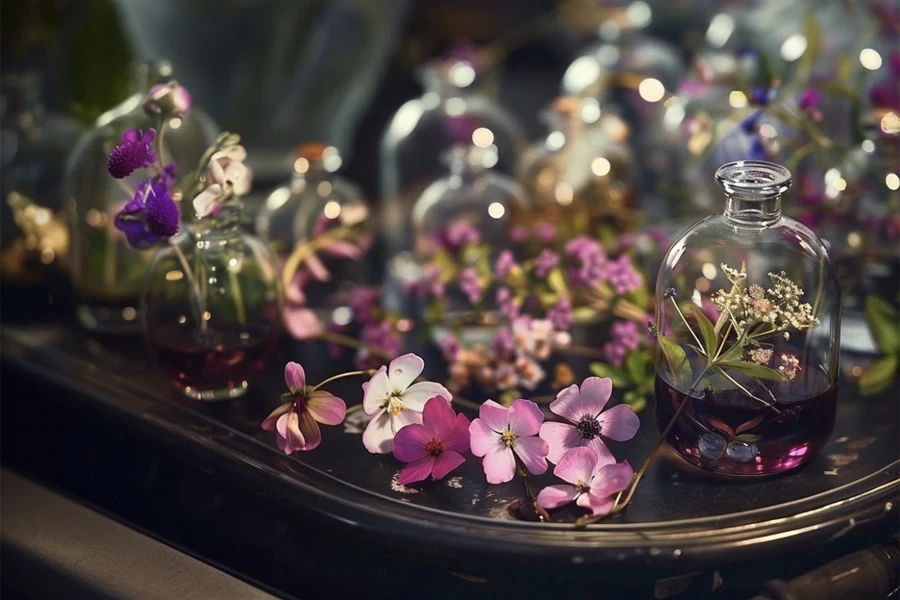
Similarly, L’Oréal has partnered with Cosmo International Fragrances to embrace sustainable air extraction technology. This collaboration has led to the development of sustainable tuberose notes, demonstrating a commitment to eco-friendly practices while maintaining the luxurious essence of traditional perfumery. These initiatives highlight how the industry can maintain its lavish standards and allure without compromising on environmental values.
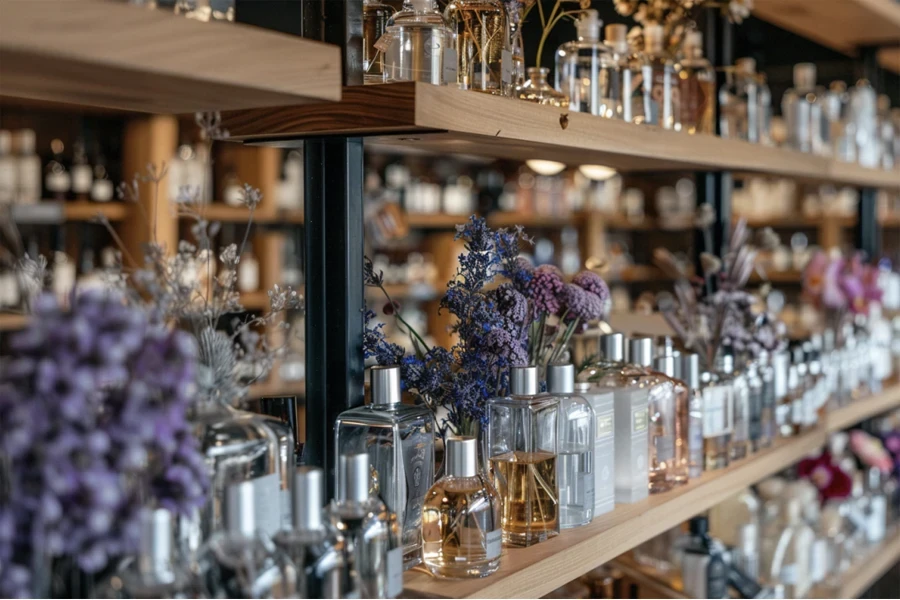
Moreover, these pioneering efforts are not just about sustainability; they also introduce a dimension of innovation that could potentially expand the perfume market. By creating scents that are both unique and environmentally conscious, these brands are catering to a growing segment of consumers who seek luxury products that align with their values of responsibility and sustainability.
The future of fragrance with AI technology
Artificial Intelligence (AI) is set to revolutionize the perfume industry by enhancing the speed and sustainability of fragrance development. US-based startup Osmo exemplifies this trend by employing AI to analyze the molecular structure of scents. This innovative approach allows Osmo to predict how a molecule will smell, thereby significantly speeding up the process of new product development (NPD). More importantly, AI facilitates the identification of sustainable alternatives, ensuring that new fragrances are not only captivating but also environmentally conscious.
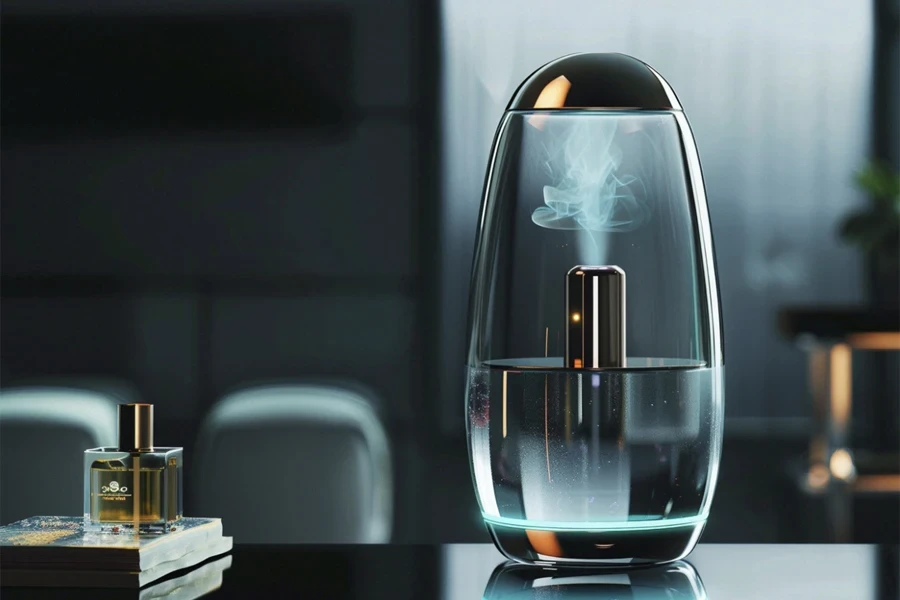
AI’s role in perfumery extends beyond mere scent prediction. It enables companies to experiment with complex fragrance combinations that would be too resource-intensive to explore through traditional methods. This capability fosters a creative explosion in scent design, leading to unique and memorable fragrances that were previously unimaginable. Moreover, AI can optimize production processes, reduce waste, and minimize the carbon footprint associated with traditional perfume manufacturing.

The integration of AI in fragrance development is a testament to how technology can foster innovation while adhering to sustainable practices. As this technology continues to evolve, the potential for creating “never-before-experienced” scents becomes more palpable, promising a future where fragrances not only evoke emotions but also respect and preserve the natural world.
Conclusion
The fusion of biotechnology and artificial intelligence in perfumery is not just a trend but a transformative shift towards sustainability and innovation. As the industry moves away from traditional, often unsustainable methods of scent creation, these technologies offer a path to preserving biodiversity while delivering unique and enduring fragrances. Brands like Firmenich, L’Oréal, and startups like Osmo are at the forefront of this revolution, proving that it is possible to captivate the senses without compromising the planet. The future of fragrance, powered by immortal perfumery, holds the promise of an industry that values both heritage and innovation, ensuring that the luxury of fine perfumes is accessible for generations to come.
